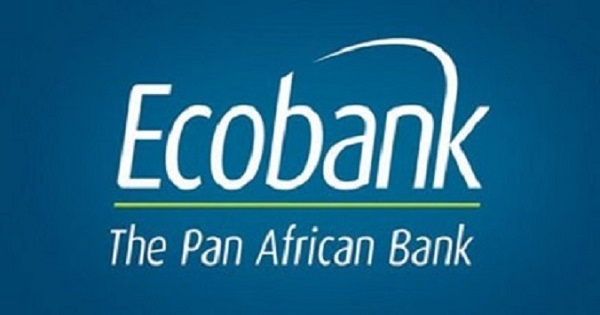Ecobank: A Bad Time For Goodwill
Ecobank Transnational Inc. [ETI] tasted the bad side of goodwill in 2020 when goodwill impairment of over N60 billion crashed pre-tax profit by 68 per cent at the end of the third quarter. That is the result of slashing goodwill in the balance from N113 billion at the end of 2019 to N57 billion at the end of September 2020.
The bank had to throw off the shrunken value through the income statement. The development appears to sum up the earnings story of the West Africa bank for the year – a plunge from nearly N100 billion after-tax profit at the 2019 to N10 billion for the nine months of 2020. The lowest profit mark in many years is to be expected from ETI as the full year earnings reporting season draws near.
All of the goodwill impairment occurred in the third quarter, which turned a pre-tax profit of N31 billion for the quarter into a net loss of over N38 billion. That shrank the bank’s half year profit of N48.5 billion to the N10 billion posted in the bank’s audited accounts in September 2020.
Besides the goodwill impairment, the bank traded under pressure in the third quarter, which resulted in a drop of 14 percent in profit before charging the goodwill impairment. The adverse pressure came mostly from net impairment charges on financial assets, which surged up by 111 percent quarter-on-quarter to N25 billion for the third quarter.
Other major rising costs that undermined profit performance in the third quarter include a drop of 163 percent in other operating income to negative of N4.5 billion over the same period. There is also a net monetary loss of N8.8 billion traced to the hyperinflationary economy during the quarter. These expenses outpaced the increase in revenue the bank earned during the quarter.
On year-on-year reading, net loan impairment expenses continued to gain speed through the year. It raced up from 49 percent increase year-on-year in the first quarter to 76 percent growth in the second and further to 89 percent to N61.5 billion at the end of the third quarter.
Revenue still failed to grow, as a 9 percent drop in non-interest earnings neutralised 7 per cent increase in interest income, leaving gross income flat at N603.5 billion at the end of September 2020. This is however slightly better than the 3 percent decline in gross earnings at half-year. As was the case at half-year, all the key components of non-interest revenue declined over the review period.
Credit loss charges claimed an increased share of interest income at the end of the period at 15.5 per cent at the end of the third quarter against 8.7 per cent in the same period in 2019. This is a reverse of the preceding year’s record when a net loan write back provided a strong cost-saving centre for the bank.
Loan recoveries record remained down at a drop of 40 percent to N27.6 billion at the end of September. The bank carried a net customer loan portfolio of N3.29 trillion at the end of September, which is slightly down from the closing figure of N3.38 trillion at the end of 2019.
Interest expenses maintained their downtrend from the first quarter to the end of the third. It continued increasing its rate of decline from 12 percent in the first quarter to 17 percent at half year and further to 20 percent at the end of the third quarter. Interest expenses amounted to N142 billion at the end of the period, indicating a cost-saving of N35 billion.

The big cost saving from the drop in interest expenses registered a significant impact on the bank’s income statement over the review period. Interest expenses claimed a reduced proportion of interest earnings at below 36 percent, down from 47.5 percent in the same period in 2019.
The further cost saving in the third quarter enabled the bank to stretch out the improvement in net interest income from 23 percent at half year to 30 percent at the end of September 2020. ETI closed the period with net interest income of N255 billion.
Cost saving from interest expenses enabled the bank to overwrite the 9 per cent drop in non-interest income and raise operating income by 9 per cent to over N461 billion at the end of September 2020.
Our expectation at the end of half year operations was that the bank’s cost-saving programmes would be insufficient to defend the bottom line. This is the summary of its earnings story at the end of the third quarter.
A moderated increase of 4 percent in total operating expenses enabled the bank to grow operating profit by 19 percent to roughly N169 billion at the end of the third quarter. Net loan impairment expenses of N61.5 billion and net monetary loss of N12.4 billion arising from hyperinflation in the economy resulted in a drop of 13 percent in pre-tax profit to N95 billion.
Goodwill impairment of N60.6 billion lowered the figure to N34.5 billion, which is a drop of 68 percent year-on-year. Tax expenses claimed almost N25 billion of it, leaving after tax profit of N10 billion for shareholders, which is a drop of 87 percent year-on-year.
Earnings per share dropped from N2.24 per share for ETI to 50 kobo over the review period. It also dropped from N1.36 reported at half year. The bank closed the 2019 operations with earnings per share N2.81.



Comments are closed.